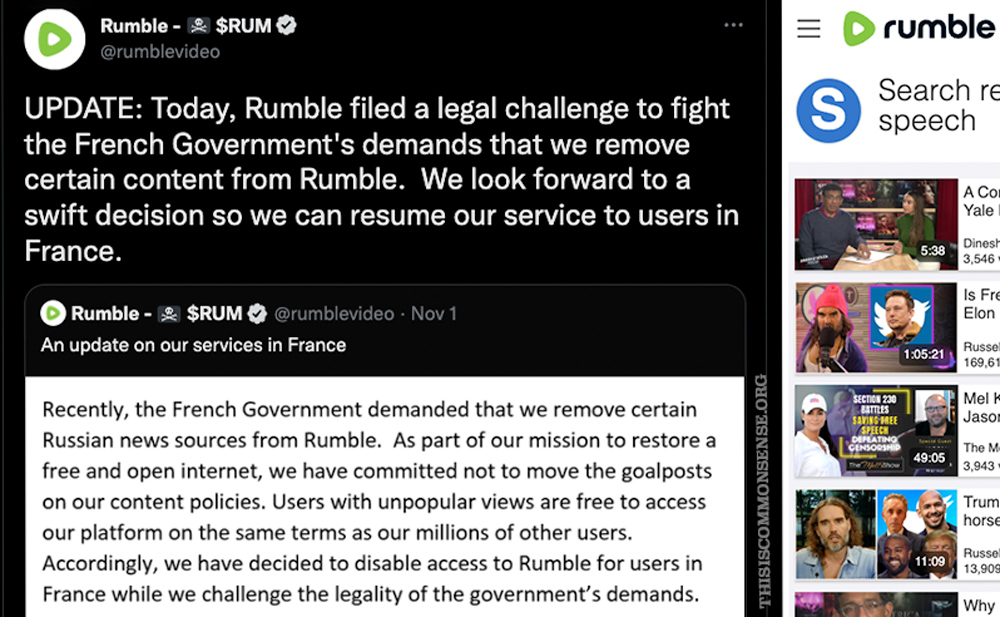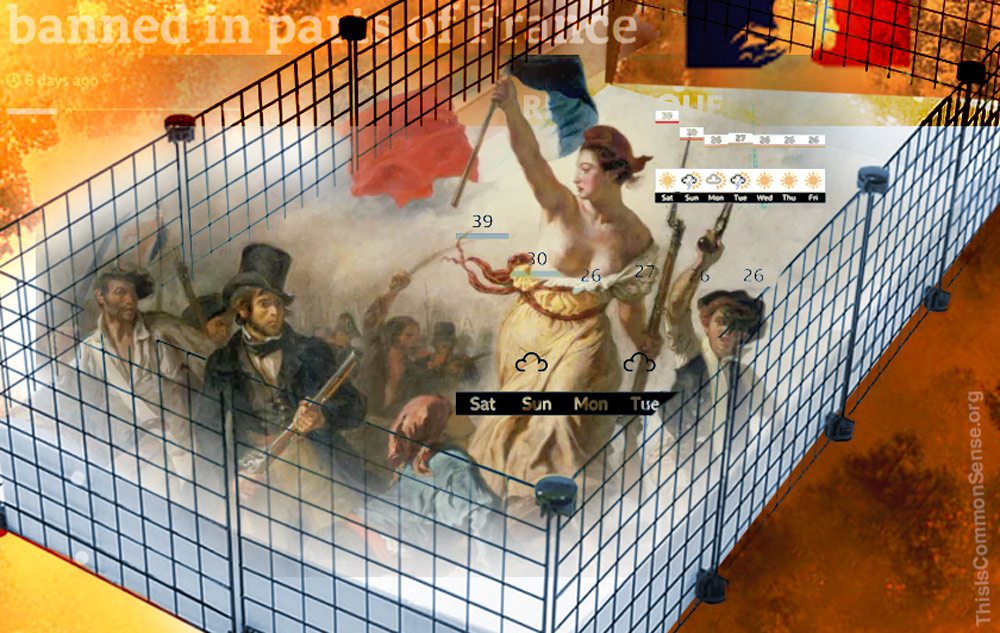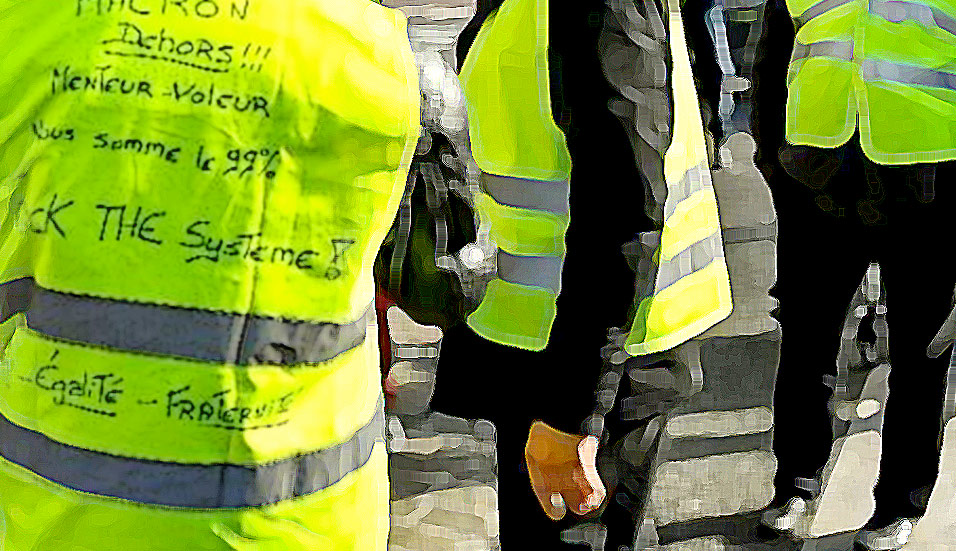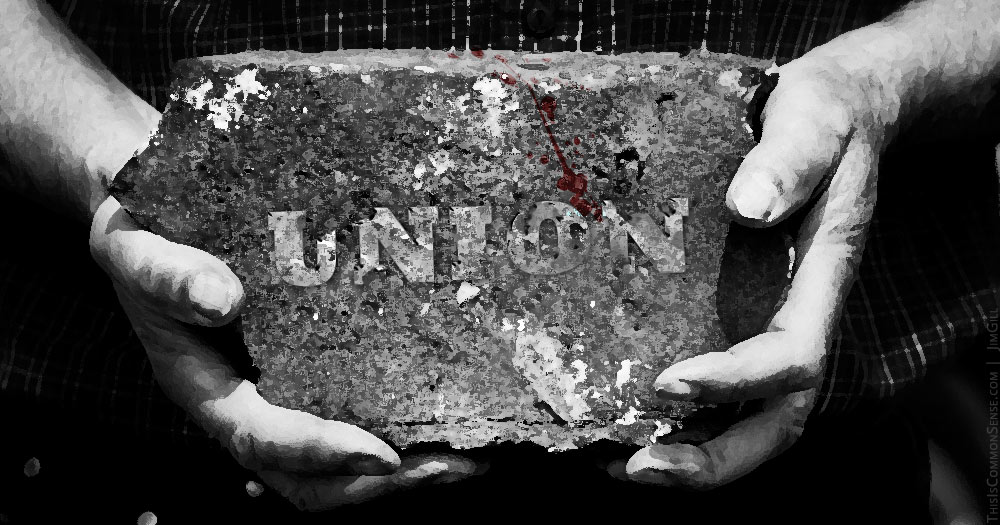In a world of almost universal assaults on freedom of speech, it is heartening when an avowed defender of it refuses to relent under pressure.
Rumble’s reason for being is to help people “control the value of their own creations.” The company creates “technologies that are immune to cancel culture.” Their mission is “to protect a free and open internet.”
A mission statement is one thing. Abiding by it in the face of major opposition is another. But Rumble has just told the French government to get lost for demanding that it deplatform certain sources of Russian news.
Stressing its policy that users with unpopular views “are free to access our platform on the same terms as our millions of other users,” Rumble has disabled access for users in France rather than acquiesce to the government’s censorship demands. Rumble will go back online there if it wins a lawsuit challenging the legality of the demands.
Like Elon Musk, who said that he wouldn’t block Russian news sources at the behest of governments “unless at gunpoint,” Rumble CEO Chris Pavlovski says “I won’t move our goal posts for any foreign government.”
Rumble started out in 2013. By late 2021, Rumble.com was being visited by an average of 36 million active users per month.
If Rumble loses France, it loses less than 1 percent of its current users — but also an opportunity for substantial growth.
On the other hand, it holds on to what it is.
And what its customers value.
This is Common Sense. I’m Paul Jacob.
Note: This Week in Common Sense, the weekend wrap-up of this program, is published on Rumble as a video nearly every week. Last weekend’s episode is “It’s a Funny World.”
—
See all recent commentary
(simplified and organized)








